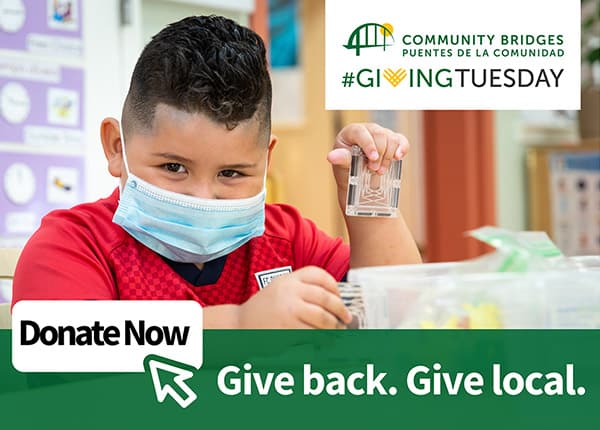When someone without stable housing or a consistent doctor walks into the emergency room for the third time in a month, the toll is not only personal—it’s financial. These repeat visits, often driven by chronic illnesses, unmanaged mental health conditions, or gaps in social support, place an enormous and unsustainable burden on California’s public health system.
In Santa Cruz County alone, a small number of high-need Medi-Cal recipients—often referred to as “super-utilizers”—consume a disproportionate share of limited resources. According to a June 2025 Santa Cruz County Civil Grand Jury report, the county lacks a reliable system to track these highest-cost patients, making it difficult to allocate care efficiently. Meanwhile, health budgets are tightening, and emergency departments remain overwhelmed.
A growing body of research supports what health advocates have long known: without proactive, coordinated care, people with complex needs end up in crisis—and taxpayers foot the bill.
In California, the state’s answer is Enhanced Care Management (ECM), a community-based solution launched in 2022 as part of the CalAIM initiative. The goal is simple but ambitious: prevent medical and social emergencies before they happen by surrounding high-need Medi-Cal members with personalized, ongoing support.
The Cost of Crisis Care
Nationally, it’s estimated that the top 5% of healthcare users account for nearly 50% of all healthcare spending. In Santa Cruz County, the story is no different. The grand jury report highlights the significant gap between what’s being spent and the quality of outcomes delivered—especially for those frequently accessing emergency rooms, psychiatric care, and short-term crisis services.
One 2025 study tracking super-utilizers found that coordinated care interventions led to a 46% drop in ER visits and hospital admissions, saving an estimated $2.5 million across a single regional system. California’s own Whole Person Care pilot—precursor to ECM—showed that coordinated services led to 130 fewer ER visits and 45 fewer hospitalizations per 1,000 participants, with estimated taxpayer savings of $383 per enrollee per year.
Without care models like ECM, communities pay more for worse outcomes.
What Is ECM?
Enhanced Care Management (ECM) provides no-cost, high-touch care coordination for Medi-Cal members with complex health and social needs. These are individuals who often fall through the cracks of a fragmented healthcare and social services system—people navigating:
- Multiple chronic illnesses
- Serious mental illness or substance use disorders
- Homelessness or housing instability
- Involvement with the child welfare or justice systems
Each ECM participant is matched with a dedicated care manager who meets them regularly—whether at home, in clinics, at shelters, or wherever they feel safe. These care managers serve as both advocates and navigators, helping clients:
- Make and attend medical and behavioral health appointments
- Manage medications and follow care plans
- Coordinate transportation, groceries, and public benefits
- Access housing, legal support, and other stabilizing resources
- Develop the skills and confidence to manage their care independently over time
Locally, ECM is administered by the Central California Alliance for Health, and delivered by trusted, mission-driven providers like Community Bridges—a nonprofit human services agency serving Santa Cruz, Monterey, and San Benito counties since 1977.
What sets Community Bridges apart is our deep roots in the community and our belief that relationships come first. Our ECM care managers reflect the diversity of the people we serve—many of them are bilingual, bicultural, and come from the very neighborhoods our clients call home. This trust and cultural humility are vital in building the relationships needed for long-term healing and stability.
In addition to our front-line care teams, our administrative staff ensures seamless coordination between clients, hospitals, primary care providers, and social service agencies. With strong internal systems and dedicated referral coordination, Community Bridges makes enrolling in ECM as easy as possible—for both clients and providers.
When you refer someone to Community Bridges’ ECM program, you’re not just connecting them to services—you’re connecting them to a team that treats them with dignity, listens to their goals, and walks with them every step of the way.
A Proven Solution—But Still Growing
By proactively managing health and social challenges, ECM reduces long-term costs and improves lives. However, programs like ECM still face capacity and funding challenges. The Santa Cruz Grand Jury report calls for better data sharing, cross-agency collaboration, and more investment in preventive care models like ECM to reduce the county’s overall healthcare burden.
As budgets tighten and needs grow, the stakes are high. But ECM offers a hopeful path forward—one where clients like Celia are no longer defined by crisis, but by resilience, independence, and the support they deserve.
To learn more about ECM or make a referral:
📞 Call: 831-688-8840 ext. 4020
📧 Email: StevenW@cbridges.org
🌐 Visit: communitybridges.org/enhanced-care-management



